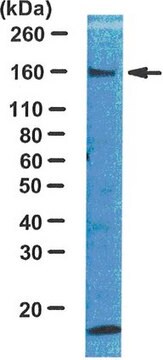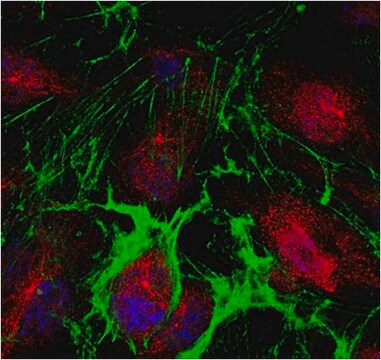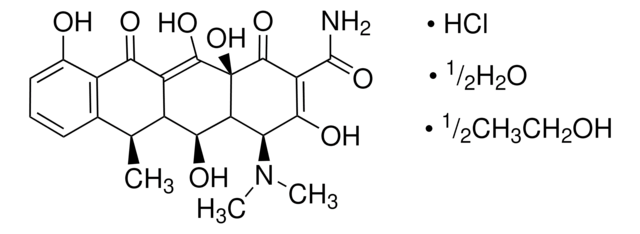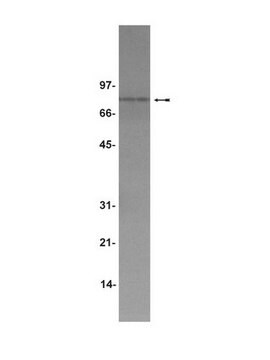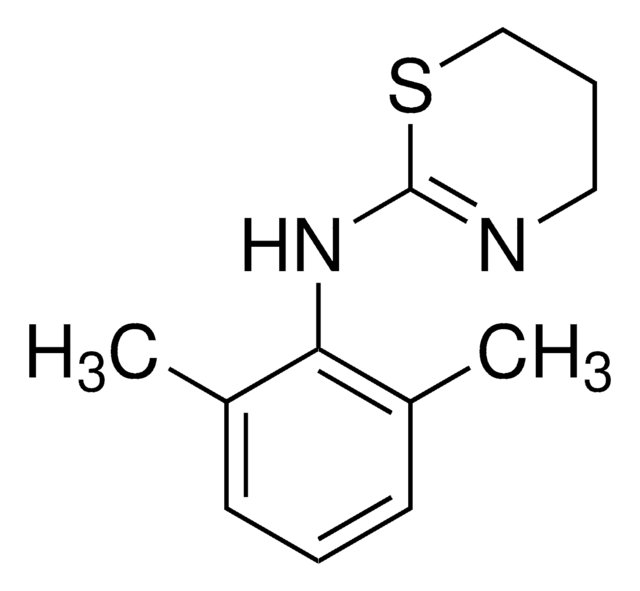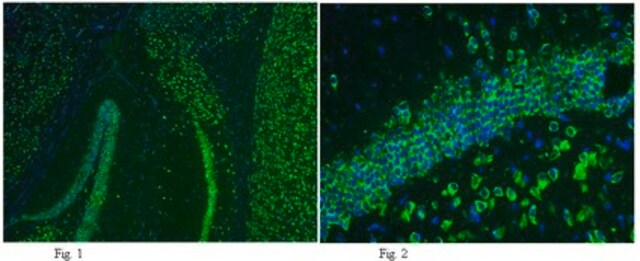07-741
Anti-AS160 (Rab-GAP) Antibody
serum, Upstate®
Synonym(s):
Acrg embryonic lethality minimal region ortholog, Akt substrate of 160 kDa, TBC (Tre-2, BUB2, CDC16) domain-containing protein, TBC1 domain family, member
About This Item
Recommended Products
biological source
rabbit
Quality Level
antibody form
serum
antibody product type
primary antibodies
clone
polyclonal
species reactivity
canine, human, mouse, rat
manufacturer/tradename
Upstate®
technique(s)
western blot: suitable
isotype
IgG
NCBI accession no.
UniProt accession no.
shipped in
wet ice
target post-translational modification
unmodified
Gene Information
human ... TBC1D4(9882)
mouse ... Tbc1D4(210789)
General description
Specificity
Immunogen
Application
Signaling
PI3K, Akt, & mTOR Signaling
Quality
Western Blot Analysis:
A 1:1000-1:5000 dilution of this lot detected AS160 (Rab-GAP) in RIPA lysates from 3T3/L1 cells differentiated into adipocytes by MDI treatment. This lot also detects AS160 (Rab-GAP) in HEK293 lysates.
Target description
Physical form
Storage and Stability
Handling Recommendations: Upon first thaw, and prior to removing the cap, centrifuge the vial and gently mix the solution. Aliquot into microcentrifuge tubes and store at -20°C. Avoid repeated freeze/thaw cycles, which may damage IgG and affect product performance. Note: Variabillity in freezer temperatures below -20°C may cause glycerol containing solutions to become frozen during storage.
Analysis Note
MDI-treated 3T3/L1 cell lysates.
Other Notes
Legal Information
Disclaimer
Not finding the right product?
Try our Product Selector Tool.
Storage Class Code
12 - Non Combustible Liquids
WGK
WGK 1
Flash Point(F)
Not applicable
Flash Point(C)
Not applicable
Regulatory Listings
Regulatory Listings are mainly provided for chemical products. Only limited information can be provided here for non-chemical products. No entry means none of the components are listed. It is the user’s obligation to ensure the safe and legal use of the product.
JAN Code
07-741:
Certificates of Analysis (COA)
Search for Certificates of Analysis (COA) by entering the products Lot/Batch Number. Lot and Batch Numbers can be found on a product’s label following the words ‘Lot’ or ‘Batch’.
Already Own This Product?
Find documentation for the products that you have recently purchased in the Document Library.
Our team of scientists has experience in all areas of research including Life Science, Material Science, Chemical Synthesis, Chromatography, Analytical and many others.
Contact Technical Service